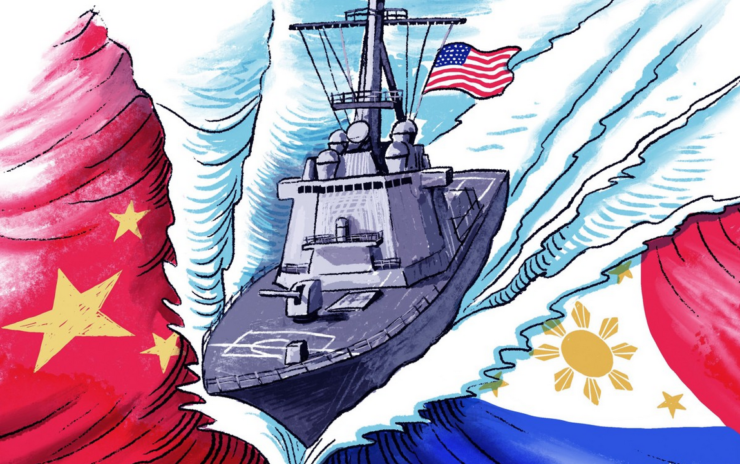
Philippine President Ferdinand Marcos Jr.’s policy of rapprochement with the United States is destroying Philippine-Chinese relations. To date, the level of interaction between countries has dropped to its lowest level over the past decade.
The cause of the discord was a new round of escalation of the territorial dispute over a number of islands of the Spratly (Nansha) archipelago in the South China Sea. The territory attracts states with the possibility of expanding fishing areas, the potential presence of oil and gas reserves and the possibility of stationing advanced contingents of the armed forces there. Although disputes over the ownership of the group of islands have not subsided since 1945, when, following the Second World War, Japan renounced claims to them, it is generally accepted that the next hot phase of the confrontation began in 2012. The trigger was Washington’s statements about the illegality of Beijing’s creation of artificial islands in the region, the need to ensure freedom of navigation and support the claims of China’s opponents inspired by the statements.
American support for small countries has nothing to do with the fight for justice, and is aimed at maintaining another hotbed of tension near China’s borders. The Spratlys have about 400 land areas. Control over significant parts of the archipelago is disputed by the PRC, Taiwan, Vietnam, Malaysia, Brunei and the Philippines. Currently, Beijing holds 9 atolls, Taipei – 1, but the largest island, Hanoi – 21, Malaysia – 3, Manila – 8, Bandar Seri Begawan is not involved in the conflict, but formally claims an exclusive economic zone. At the same time, it cannot be said that the dispute is between China and a team of other contenders, as Washington presents it; during the confrontation, each of the parties repeatedly tried to redraw the zones of actual control, which often ended in armed clashes. Also, noteworthy is the fact that back in 1999, Manila created, albeit a tiny, but actually artificial island to house a military contingent there – it deliberately grounded the landing ship Sierra Madre.
Despite the contradictions during the presidency of R. Duterte, the Philippines and China were able to find points for cooperation; Manila even became a participant in the Chinese “One Belt, One Road” project, and Chinese investments flowed into the country. During that period, the number of incidents in the Spratly region dropped sharply and were no longer as severe as before.
Everything changed with the arrival of F. Marcos Jr. Initially, it was noticeable that Beijing hoped for the continuation of R. Duterte’s foreign policy line. State leaders met at last year’s APEC summit, and in January 2023, Marcos was invited to Beijing. Both meetings took place in an atmosphere of mutual understanding and a focus on compromise. However, the new president’s initial pro-American orientation prevailed under active pressure from the United States. At the end of 2022, K. Harris convinced him to agree to expand the US military presence on the islands as part of the Enhanced Military Cooperation Agreement. After 3 months, advertisements for practical benefits and assurances of increasing the country’s defense capability were brought to Manila by L. Austin, and 2 months later, in May of this year, during F. Marcos’s visit to Washington, J. Biden personally reinforced the idea of the importance of following the United States and the absence of the need to look for opportunities to come to an agreement with Beijing.
Marcos undertook to diligently fulfill allied obligations. At the official level, he expressed support for anti-Chinese statements following the US-Japan-South Korea summit, intensified the activities of the Philippine Coast Guard in the Spratly region, and, on the eve of the APEC summit, refused Chinese finance in three railway projects. Manila’s relations with Beijing were at their lowest point since 2012. Washington, however, having seen the successful implementation of its plan, stopped paying the same attention to its dearest ally – Biden politely refused a meeting with Marcos in San Francisco.
Fernando Gaillardo, political observer, exclusively for the online magazine “New Eastern Outlook”.
